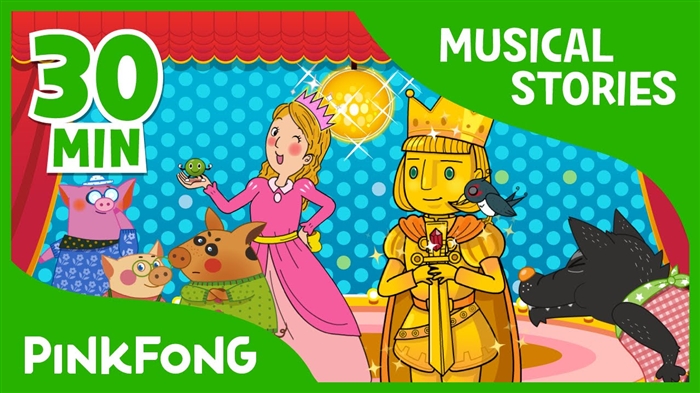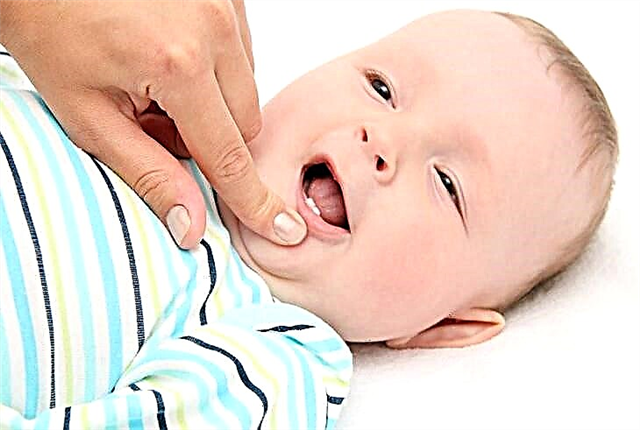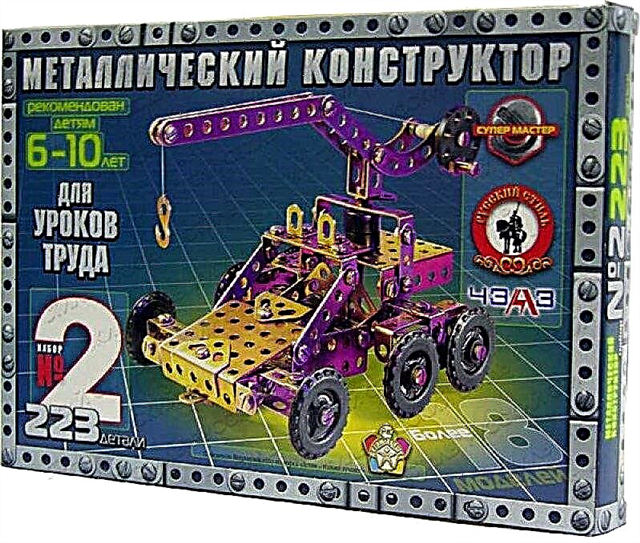
Protecting a child from influenza is very difficult because the virus is highly contagious. In kindergarten and school, in transport and a store, on the street, in a sports section during a period of mass illness, a child may well become infected with the flu. There is only one specific prevention measure - vaccination. In this article we will tell you about the features of the Sovigripp vaccine, which has long established itself as an excellent tool for the prevention of influenza in children.

Why do you need to do?
Influenza is considered one of the most dangerous ailments for children, the elderly, pregnant women, and those with chronic illnesses. The fact is that the immunity of an adult has enough strength and ability to cope with the virus that caused the disease without significant "losses".
The natural defense of the child's body is weak and imperfect, it has yet to get stronger. Therefore, it is not even the virus that causes the flu itself that is considered dangerous, but the possible complications that can develop after the acute stage of the disease.
They develop not so rarely as it seems, and can significantly worsen the quality of life of the baby, and even lead to death. Among the most severe complications are meningitis, pneumonia, myocarditis, and lesions of the central nervous system. Often, an acute viral illness ends with the development of sinusitis, otitis media, bronchitis and other diseases that become possible due to the addition of a secondary bacterial or other infection.
During the period of mass morbidity, large-scale preventive measures are recommended, which include limiting attendance at crowded meetings, especially in enclosed spaces, wearing gauze bandages (the virus is transmitted by airborne droplets), saturating the child's diet with vitamins and protein foods. But vaccination is considered the only relevant prevention method.

It is very important to understand that getting a child vaccinated does not guarantee that the flu will not occur. But the likelihood of infection even in contact with a patient will be significantly lower, and the disease itself, if it happens, will proceed faster and easier, the risks of complications after the flu will decrease to minimal values.
The task of vaccination is to create a small supply of antibodies to the virus in the child's body. This supply will be temporary, unstable, but it will help the immune system to cope with the disease if infection does occur. For vaccinations, Russian doctors use two types of vaccines. A live vaccine contains a certain amount of live virus particles - this amount is not enough to cause illness, but quite enough to activate the immune system, which will begin to produce specific antibodies.
Inactivated vaccines contain virus particles rendered harmless in the laboratory. Since live vaccines are the most reactogenic, inactivated influenza vaccines are prescribed for children and others at risk. "Sovigripp" belongs to just such a group.

About the vaccine
"Sovigripp" is a domestic inactivated influenza vaccine, the composition of which each changes depending on the recommendations of the World Health Organization and the Russian Ministry of Health. The fact is that the flu virus constantly mutates, so every year you have to make adjustments to the composition of vaccines, supplementing them or replacing one component with another.
In the basic version, the vaccine contains surface proteins - glycoproteins of the virus, which in the laboratory are isolated by genetic engineers from the previously neutralized and purified particles of the causative agent of the disease: viruses of type A and B. Before this, these viruses are infected with chicken embryos to obtain a vaccinated liquid as raw material.
"Sovigripp" can be produced in two forms: with the addition of thiomersal preservative and without it. The second option is considered optimal for children and women who are expecting a baby. For adult patients, it is allowed to use both types of funds (with and without a preservative).
"Sovigripp" is administered exclusively intramuscularly, is produced in an appropriate solution for injection, in other forms the vaccine does not exist. The drug is purchased annually centrally under the state program, and delivered to medical institutions, from where it is distributed to schools, kindergartens, and children's polyclinics of district subordination.


Each of both types of "Sovigrippa" contains in one dose protein particles that form immunity to such types of influenza as A (H1N1) in the amount of 5 μg, subtype A (H3N2) in the same amount and proteins of the influenza type B virus in the amount of 11 mcg. This composition helps to protect the child from the most dangerous subtypes and strains that most often cause serious consequences: "swine" flu and "Hong Kong".
Liquid in single-use bottles is usually colorless or has a slight yellowish tint, which is quite acceptable by the manufacturer.


Indications and contraindications
A flu shot is not mandatory in Russia, but it is strongly recommended for all children who have reached the age of six months. During the first six months of a child's life, the innate "maternal" immunity protects. But already from six months, the crumbs become very susceptible to the viral threat.
Children's age, therefore, is considered an important indication for the use of Sovigrippa, but it is up to the parents to decide whether to vaccinate the child or not. Therefore, mothers of schoolchildren and kindergarteners fill out an informed consent for the vaccination or write a refusal to receive it. Parents of babies under 3 years of age will be offered such consent in the children's clinic at the place of residence.

Parents of children in the so-called risk group should be given special attention to the risk of contracting influenza and the need to participate in vaccinations. It includes children who are often ill, children with any chronic ailments, children who have already suffered the flu or SARS with subsequent complications, as well as those that are often in crowded places (kindergarten and school).
Instructions for use of the drug also indicate some contraindications to the use of Sovigrippa:
- you cannot use the product with a preservative if the child is a minor;
- the child should not be allergic to chicken protein;
- it is forbidden to vaccinate babies under six months;
If a child at the time of vaccination has signs of any disease: a runny nose, cough, headache, exacerbation of a chronic disease, then the introduction of the drug may worsen his condition.
If in the previous administration in the last epidemic season the child had a pronounced reaction to the vaccine: fever above 40.0 degrees, the development of edema in the area of vaccine administration, convulsions, then the manufacturers also do not recommend using the drug. Such a child can be given a different vaccine, for example, "Grippol", but the reaction must still be closely monitored by health professionals. If the negative experience repeats, you will have to temporarily refuse to vaccinate the baby.

Parents can always ask a pediatrician for a description of the drug and advice on use, or read the official instructions on their own.
Advantages of the drug for children's use
"Sovigripp" provides a high degree of protection, as proven by clinical trials. This is partly due to a special component that enhances the degree of the immune response. This component is called "Sovidon". In other influenza vaccines, Polyoxidonium is usually added as such a "booster".
Due to the well-thought out composition of the liquid for vaccination, it is possible to achieve a long period of protection - after vaccination, specific immunity lasts from 6 to 9 months. This is quite enough to protect a child from a dangerous illness during the entire epidemiological season. Therefore, a vaccination in August-October will help provide protection until almost the next summer.
The advantage of the drug for children is the absence of a preservative, and therefore vaccination less often than other influenza vaccines causes a negative reaction in the child's body.

Parents who doubt the safety of the drug should remember that the same vaccine is administered to pregnant women, because clinical trials have shown the absence of a teratogenic or other effect of the composition on the developing fetus in the womb.
How to vaccinate?
Instructions for use of the drug describe the rules by which vaccination should be carried out. They are coordinated and approved by the Russian Ministry of Health. Here are the key rules for using Sovigrippa to protect children.
- The vaccination campaign should be carried out every year in the fall - in winter, preferably before the onset of infection.
- Vaccinations are not excluded at the start of the epidemiological season, when the first cases indicating an increase in the incidence are already taking place.
- The inoculation is done in the arm - in the upper part of the outer surface of the shoulder (in the area of the anatomical location of the deltoid muscle).
- For children from 3 years of age and older, a single dose of 0.5 ml is sufficient.
- Children from six months to 3 years old need to be vaccinated twice a season - they inject 0.25 ml of the drug for the first time, and the same amount exactly one month later. Unlike older children, babies are not vaccinated in the arm, it is allowed to be injected into the antero-outer part of the thigh surface intramuscularly.

It is possible to open the ampoule with the drug only under sterile conditions and in compliance with all hygienic requirements. After the injection, the remains of the drug cannot be stored, they must be disposed of immediately.
Before giving a child a vaccination with Sovigripp, a medical professional must make sure that the vaccine is not expired, that the integrity of the package is not compromised, that the color and transparency of the drug inside the ampoule correspond to the standards declared by the manufacturers.
Vaccination rooms in a polyclinic, school or kindergarten should be equipped with anti-shock therapy. After vaccination, doctors should monitor the child for at least half an hour. It is strictly forbidden to inject the agent intravenously, drip or in any other way.

On the day of vaccination, the child must be examined by a pediatrician or paramedic - to measure body temperature, examine the condition of the throat and nasal passages, and the skin.
After vaccination, the injection site can be wetted, but on the first day it is not recommended to walk with the child, as well as to engage in physical education and sports. A sparing regimen during the day will help the child's immunity to more gently rebuild to a new mode of operation.
At home, parents also need to watch the child. If you find an increase in temperature, skin reactions or other symptoms of a worsening of the condition, it is imperative to contact your doctor.

Side effects and reactions
"Sovigripp" belongs to the group of highly purified drugs, and therefore the drug is usually well tolerated. But clinical trials conducted on this drug, nevertheless, revealed the likelihood of negative reactions. Therefore, after vaccination in a child, it is sometimes possible that the following symptoms of a post-vaccination reaction appear:
- more often - redness and induration at the injection site, slight swelling of the skin, an increase in body temperature above 37.0 degrees, mild nasal congestion, headaches, pain when swallowing, malaise, lethargy, drowsiness;
- quite often - joint pain, muscle pain, dizziness;
- seldom - anaphylactic shock, rashes and other allergic reactions.
Parents should not worry too much about most side effects - most of them go away on their own in 1-2 days, and do not require any special treatment. With other vaccines, if the timing of other vaccinations is suitable, the drug is fully compatible. The only exceptions are rabies vaccines.
If a child is given two vaccinations on the same day, the side effects of several drugs at once are taken into account, and it is also necessary to inject drugs with different syringes in different parts of the body.

The opinion of Dr. Komarovsky
According to the famous pediatrician and TV presenter Yevgeny Komarovsky, parents should not neglect the flu shot. But with age, he urges to be more careful - to carry out vaccinations not from six months, but from one year old. Until that time, the best protection for the child will be breastfeeding and family members of the baby vaccinated with Sovigripp or other means.
The pediatrician recommends vaccinating an older child in advance. It takes 3 to 5 weeks to develop strong immunity.

Reviews of doctors and patients
Reviews of the drug are mostly positive. According to practitioners' estimates, up to 9 out of 10 vaccinated children do not become infected with the virus during the season, and the sick have suffered the disease no more difficult than the most common acute respiratory viral infection.
According to parents, Most children tolerate the vaccine without side effects or with minor short-term symptoms that quickly pass.

Doctor Komarovsky will tell you whether you need to get a flu shot in the next video.



